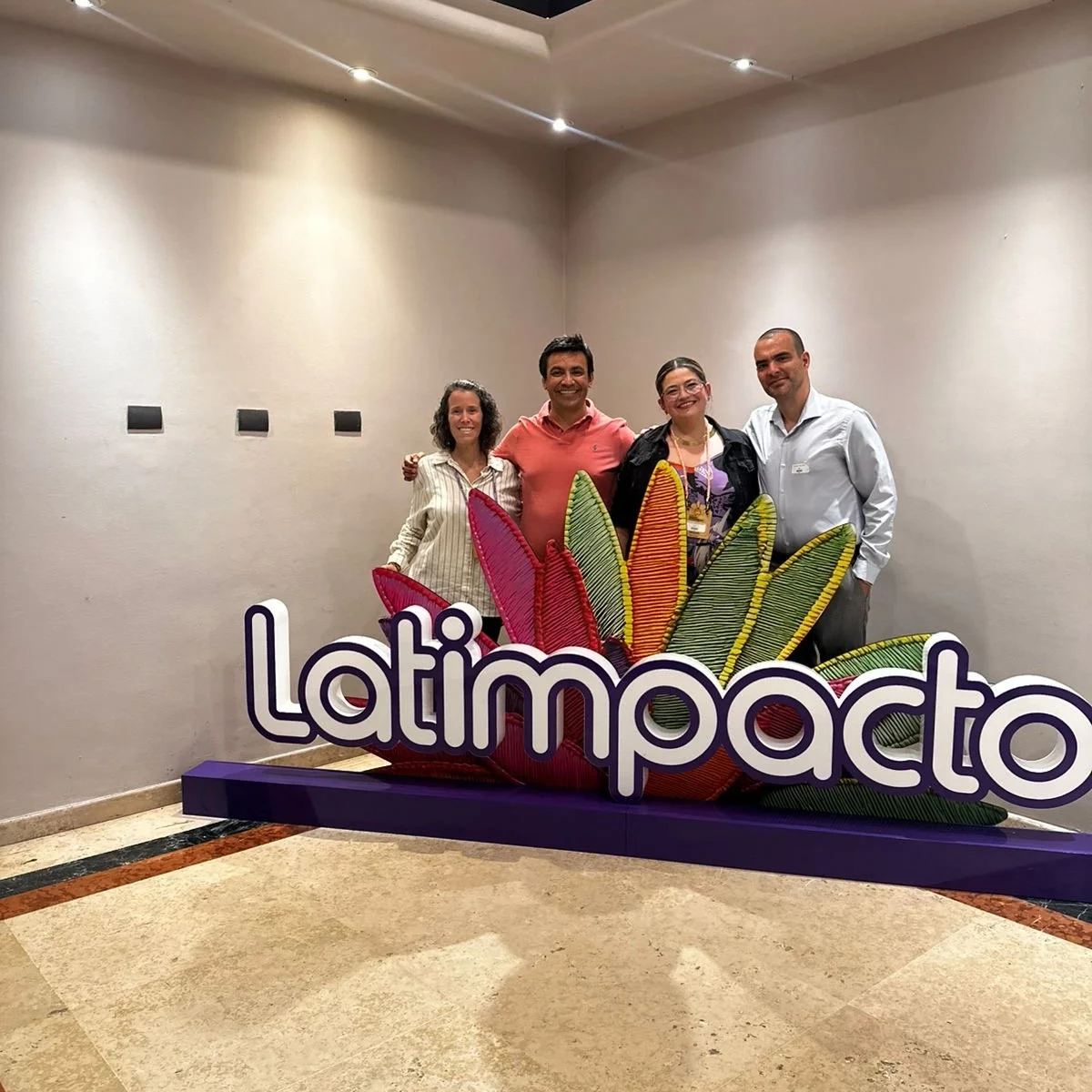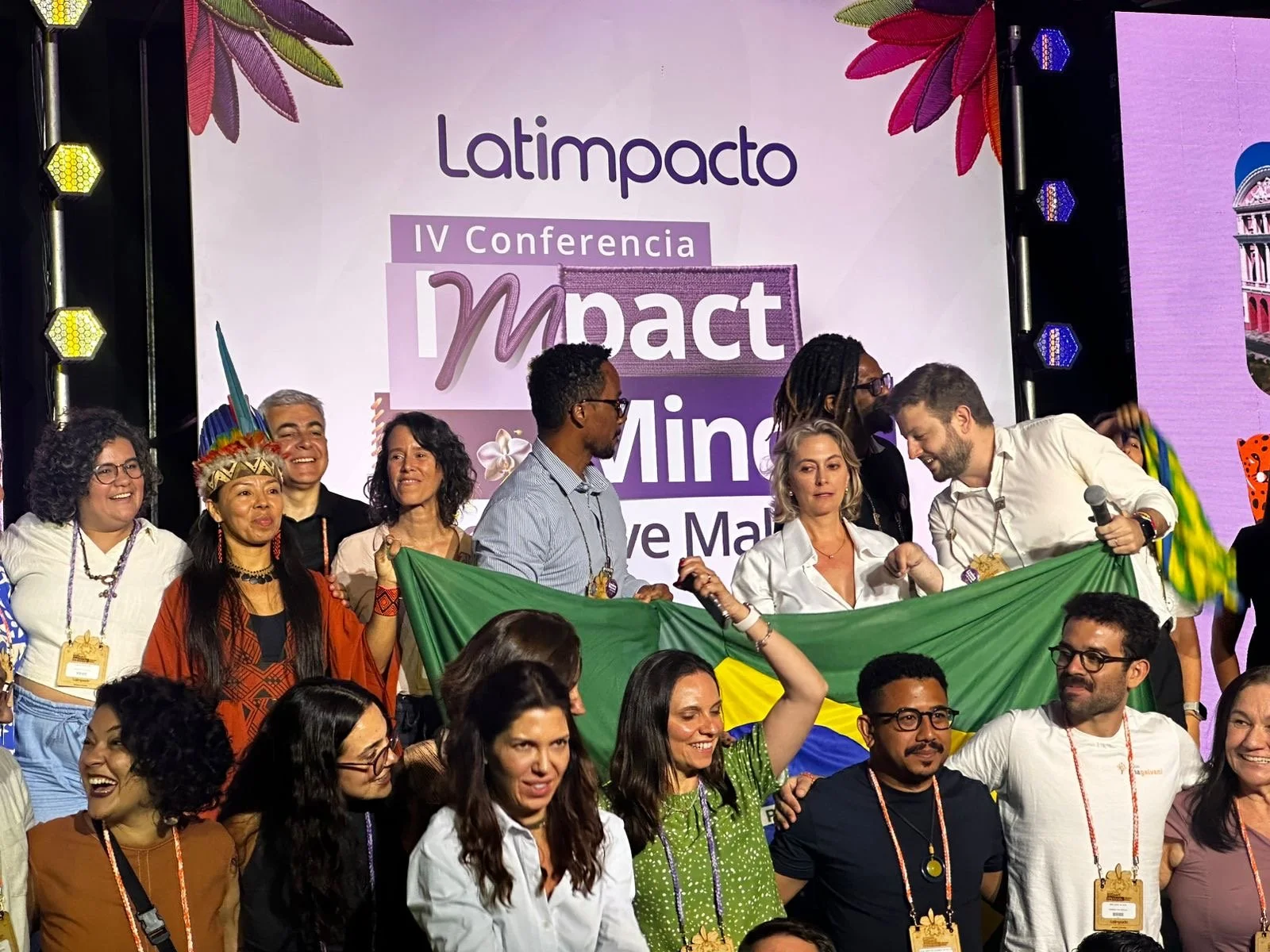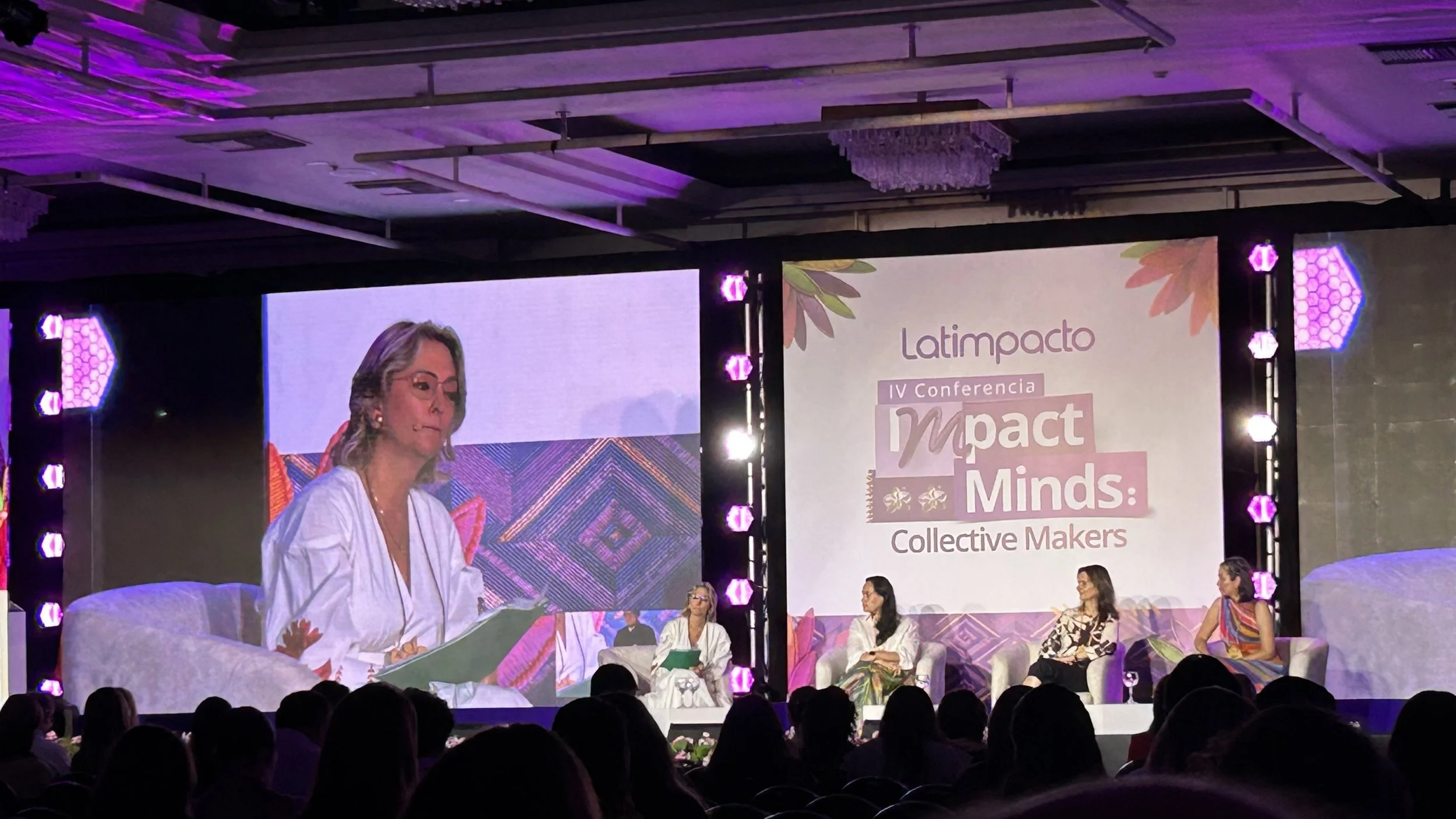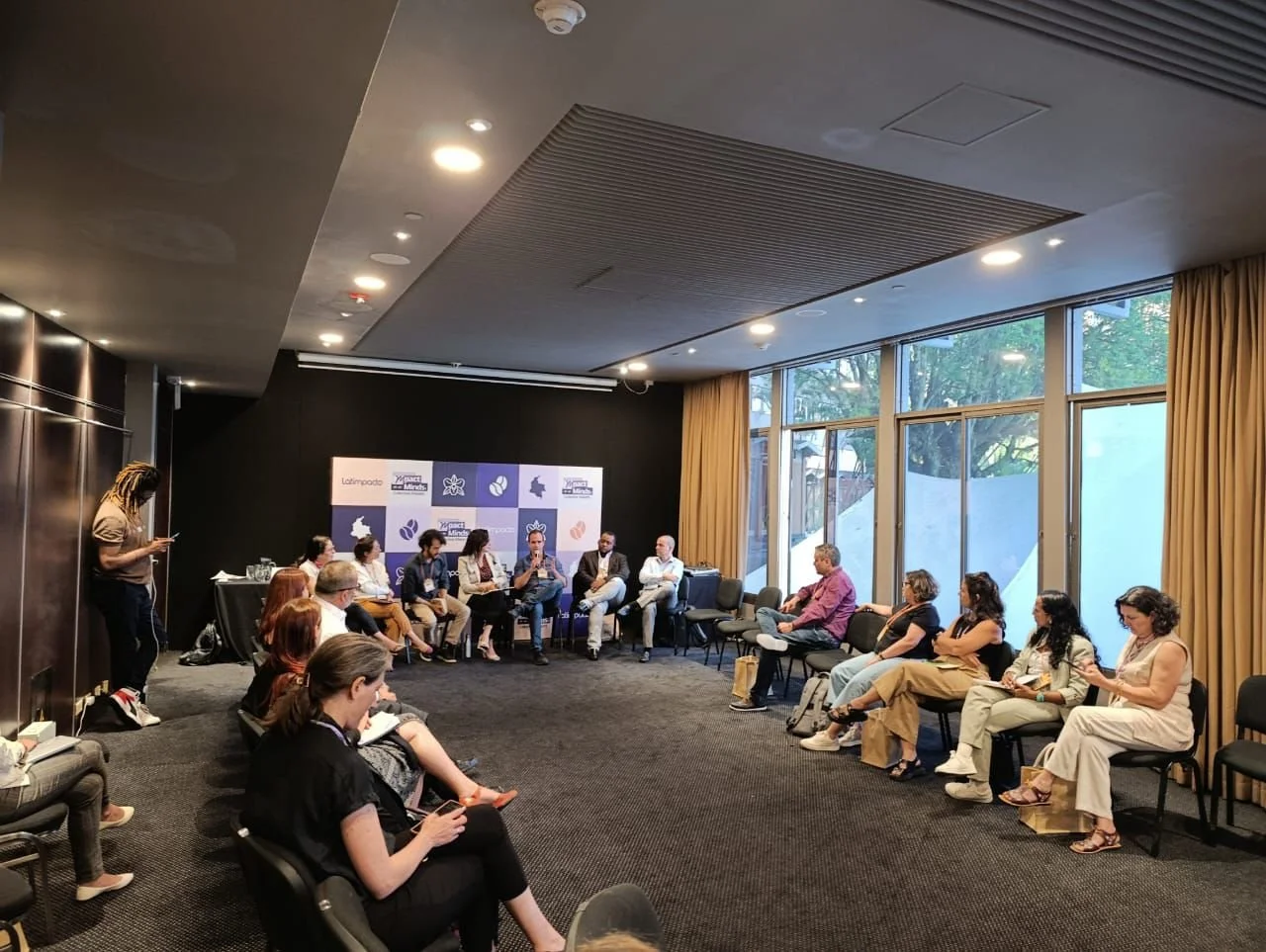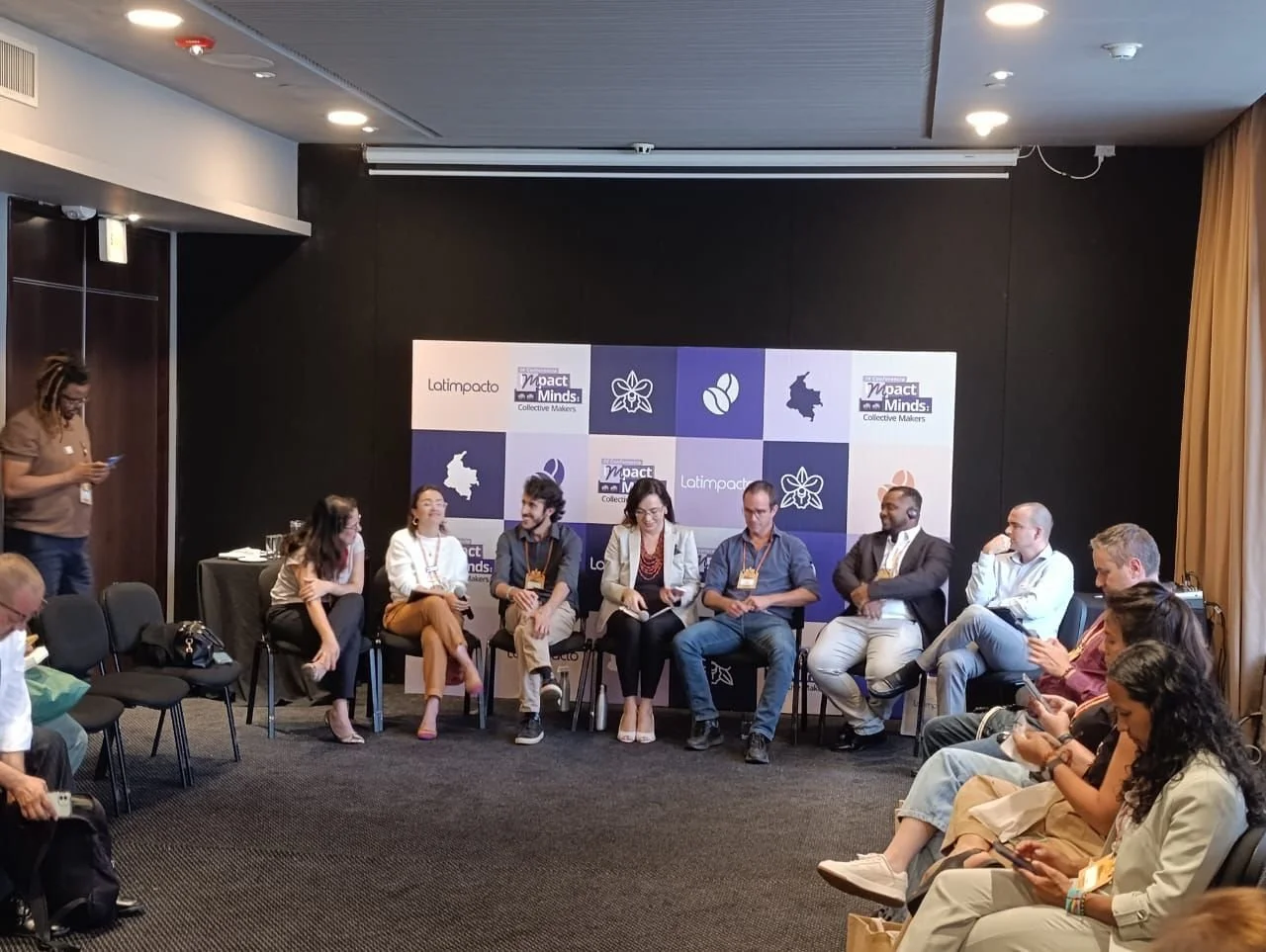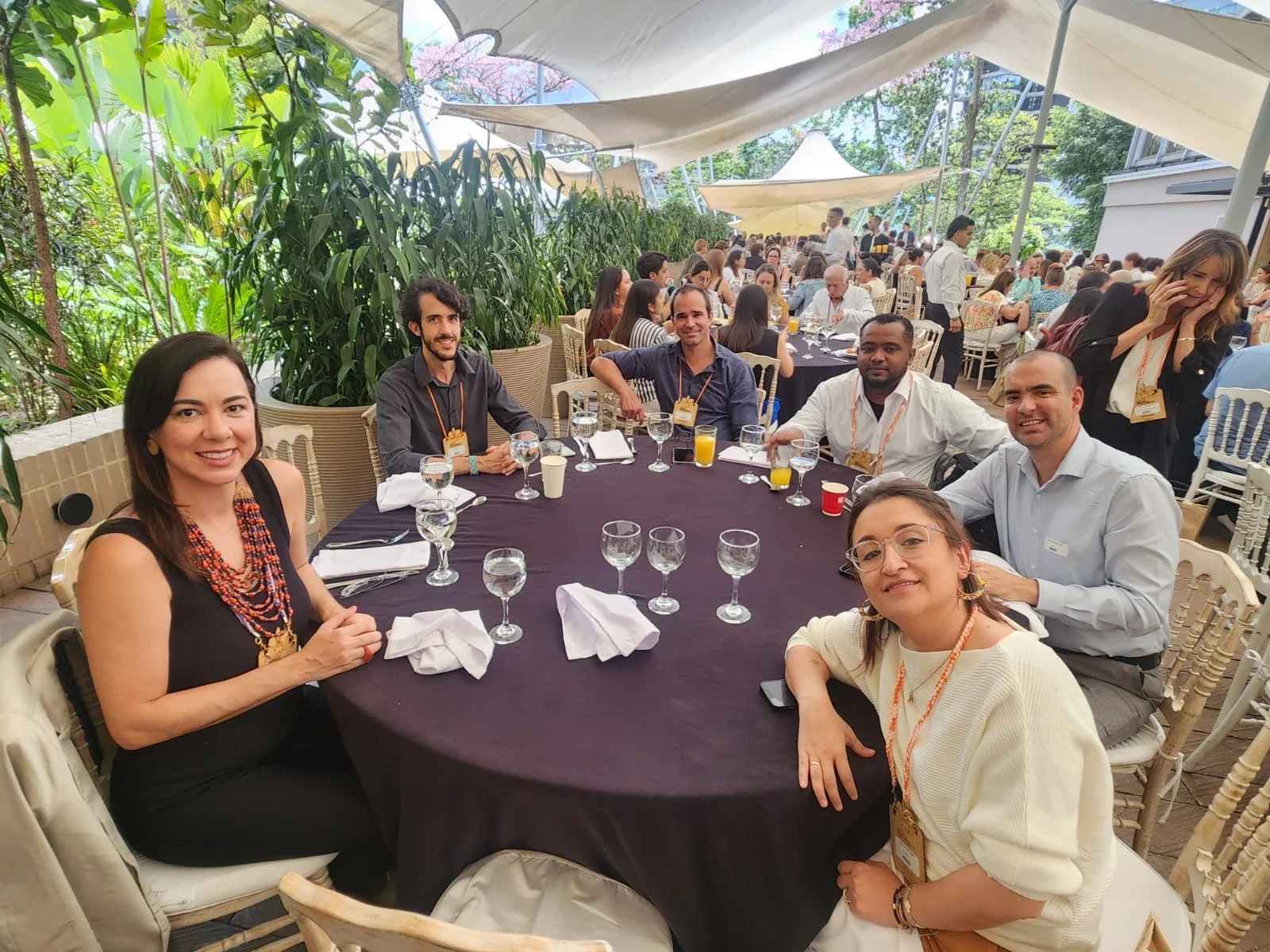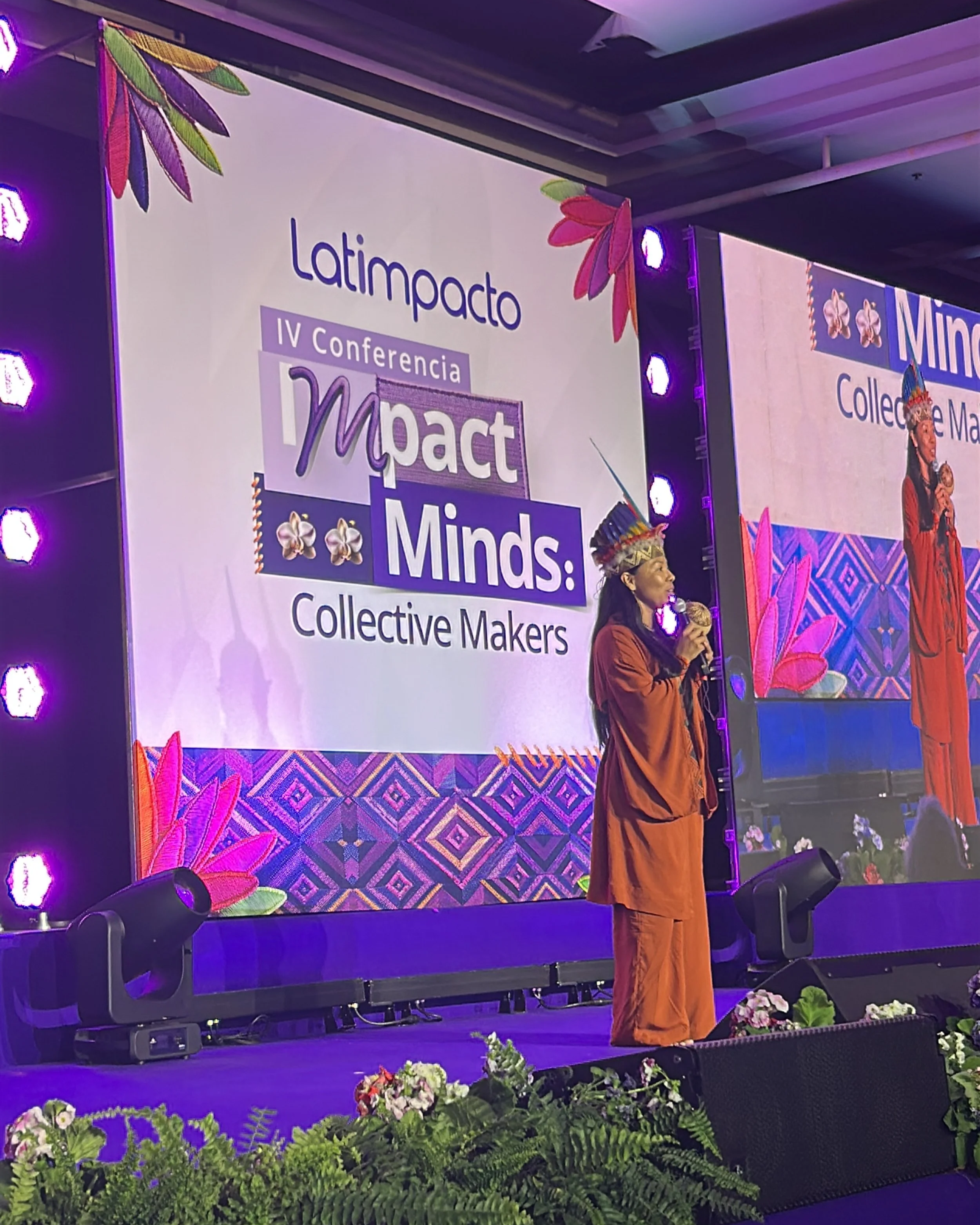In this article, Renata Truzzi, NESsT Chief Impact and Operations Officer shares her reflections from Impact Minds: Collective Makers 2025 by Latimpacto, weaving together her own insights with voices and stories from the event, showing how collective action, ancestral knowledge, and community-led approaches are shaping the future of impact investing. [Originally posted to LinkedIn]
What can I say about this year’s edition of Impact Minds by Latimpacto?
NESsT team at Impact Minds: Collective Makers 2025
Firstly, it was deeply inspiring. Moments like these remind us that our missions are interconnected. These encounters give us strength, especially when we lose sight of the fact that the future is collective.
I was also profoundly moved by the advances in impact investing, a field where NESsT has been a long pioneer. Nearly 30 years ago when we began this journey, little was known about the concrete results of the social and environmental impact we tied to our investments. At the time, many of us were driven simply by the urgency to reduce the harm that the capitalist system was bringing to our communities and our planet.
Today, we can do much more: we can measure, demonstrate, and tell the story with certainty – that prevention is not only more effective, but also far less costly than remediation.
I return from this gathering with mixed emotions.
On one hand, it was incredible to witness the advances in the field and celebrate them with partners and friends from across the ecosystem - Latimpacto, Conexsus - Instituto Conexões Sustentáveis, Sitawi Finance for Good, ARTEMISIA Brasil, Conservation International, Yunus Negócios Sociais, Vanda Witoto, Karim Harji, Whole Foods Market Foundation, Inter-American Development Bank, IKEA Social Entrepreneurship, Rachel Añón, ZIGLA, and so many others.
Impact Minds: Collective Makers 2025
On the other hand, it's troubling that we sometimes find ourselves repeating the same hypotheses we had 30 years ago: that there is no pipeline of businesses for investments in the Amazon or for community-led social businesses. This highlights that we still have much to learn about the other side of the story. Too often, our approach to communities is top down, assuming that we have the solutions while they have the problem – when in fact many of the challenges they are facing have roots in our own actions and systems.
Both traditional and impact investors have an opportunity to rethink their strategies and adapt their practices to help drive broader change. Communities, like the rural and riverside communities of the Amazon, already hold many of the answers and have much to teach us. Real, lasting transformation begins when we approach with a mindset of learning rather than teaching.
We are fighting for a world where social impact is not a separate chapter of capitalism, but rather an intrinsic and non-negotiable part of business models of the future. We must move beyond investments that lead to forest destruction or the exploitation of people – issues that remain among the most serious we face. We are fighting for a world where impact is second nature to every investor, not only those present at Impact Minds 2025, and the word “impact” itself will no longer stand apart.
These ideas and more were powerfully illustrated during Impact Minds 2025, through stories and insights shared by participants. Below I share some real-world examples and voices from the event that bring them to life.
Leonardo Letelier from Sitawi Finance for Good reminded us that “At Sitawi, we practice the concept of Empathetic Capital: using finance to support, respect, and walk alongside those on the front lines. An example is CooperSapó, a cooperative of guarana farmers in Amazonas, which is also part of the NESsT Portfolio in Brazil. When they faced financial difficulties and even a crop failure, it wasn't enough to just collect the debt. It was necessary to renegotiate terms, reduce costs, offer technical support, and even organize Excel training to strengthen the financial management of the cooperative itself and others in the region. This is the kind of attitude that reveals the true power of Empathetic Capital.”
María Carolina Suarez Visbal, CEO of Latimpacto shares: “Let us ask more and question less. We are all catalysts of change.
María Carolina Suarez Visbal, CEO of Latimpacto, shared: “Let us ask more and question less. We are all catalysts of change.” Similarly, Catalina Herrera Jaramillo, Director of Knowledge at Latimpacto, reminded us of the responsibility to also measure and communicate our impact: “Data can be both constructive and destructive. We have to ask the right questions. Be more critical. Words build realities.”
By bringing only women to the discussion table on Development Banks, Carolina sent a powerful message. reminding us of a principle we need to reinforce daily in the world of impact investing: “Nothing about us without us.”
In practice, this means not investing in Indigenous communities without having Indigenous people in investment decision-making; or not investing in businesses led by Black populations while relying on a 100% white investment committee. And the same is true for gender: we cannot claim to apply a gender lens to our investments if women are absent from leadership, or if our own teams don’t reflect equity in opportunities and pay.
Alejandra Ramírez, NESsT Country Director Colombia speaks on the panel “Innovate to Regenerate: Transformative Capital for Latin America”
As Karim Harji, Programme Director at Said Business School, University of Oxford, asked us: how can we expect to create systemic change with financial instruments that last only three to five years? His answer: “Systemic change requires patience and time. What we are doing in Impact Investing should be the starting point and not the finish line. It should be the standard. Getting there will require collective action - not only within our own areas but across the institutional roles we play and the emerging innovations we need to promote together."
Our director in Colombia, Diana Alejandra Ramirez Loaiza, showed us that community businesses have been practicing regenerative agriculture long before there was a formal name for it. Six companies in the NESsT Colombia Portfolio are actively implementing regenerative practices, and as I mentioned before, we are the ones learning from them.
“The women in our portfolio bring a broader vision of all the social and environmental impact their businesses bring to the community. They bring ancestral knowledge and innovative processes, without knowing what name to give it. Regeneration is a collective task!
”
Our partners and friends from Conexsus - Instituto Conexões Sustentáveis, Emanuelli Caselli and Pedro Frizo, reminded us that government programs often fail to reach communities on the ground. That's why they conducted extensive mapping across different Amazonian countries, which will serve as the basis for the work of the AmazonBeEco program, of which NESsT Peru is a part.
Ricardo Díaz presents the AmazonBeEco project on the panel “Pan-Amazon Socio-Bioeconomy: Building a Regional Coordination Agenda Based on Community Ecosystem Mapping in Brazil, Colombia, Guyana, Ecuador, Peru, and Suriname”
Ricardo Díaz Hart, our Acceleration leader, presented both the enormous potential of community businesses and the barriers they face. He reinforced Conexsus's message by noting that the mapping in Peru also revealed that regulatory systems and most financial instruments are poorly aligned with the reality of Amazonian businesses. Among the companies mapped by NESsT Peru, 66% have Indigenous leadership and 44% have gender-focused activities.
All these examples offer valuable lessons that deserve to be replicated. But it also invites us to consider: how can we extend our message beyond those already aligned with our mission?
Vanda Witoto speaks at Impact Minds: Collective Makers 2025.
In this sense, I believe Conservation International is taking great strides. Leading the PanAmazonian Network, of which NESsT is a partner since 2023, Rachel Biderman points out that a very simple yet highly impactful step for investors would be to stop supporting economies of destruction. She also asks: “What is the magic solution to jump from dependence on philanthropy to greater fundraising of investments for the Amazon?”
Finally, I want to end on the words of Ticiana Rolim Queiroz: Founder and President of Somos Uno: “We discovered that empowering communities is something to be done with them and not for them,” and Vanda Witoto, Executive Director of Instituto Witoto: “Nature teaches us to be collective and to share. We need to access another form of AI – ancestral intelligence.”
These encounters are so powerful because they remind us of the power of the collective. And as we already know, the future is ancestral and collective!
““I take away valuable learnings, powerful connections, and the certainty that impact is only achieved when we work together, with a long-term vision and real commitment.” ”
Thank you to the Latimpacto team – Caro, Pedro Telles, and others – for this shower of positive impact.


